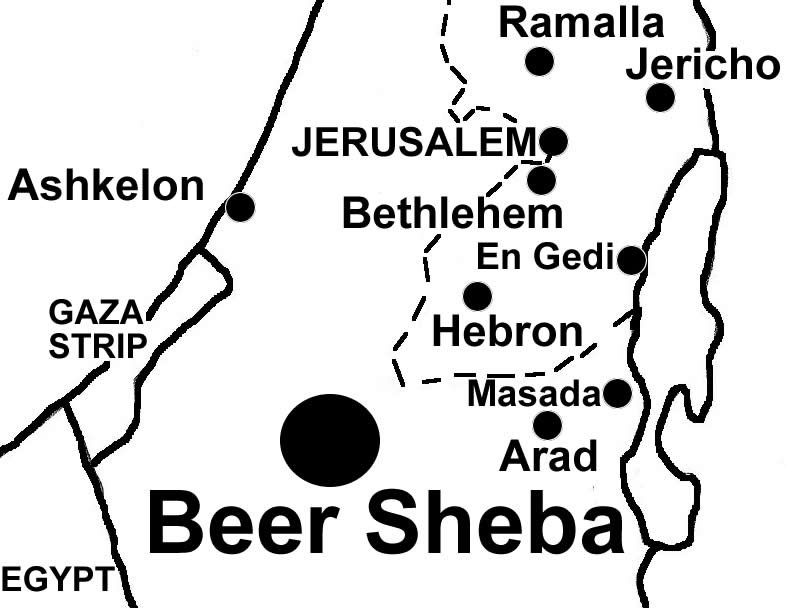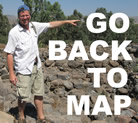In the Bible:
Genesis 21:14, Hagar and Ishmael wander in the wilderness of Beersheba;
Genesis 21:25-34, Abraham paid seven ewe lambs and took an oath with Abimelech for ownership of a well he had dug. It was called “well of the oath” or “well of seven” which is “Beersheba.”
Genesis 26:26-33, Isaac argued with Abimelech concerning a well. Isaac then dug a well that same day and named it “Beersheba.”
Genesis 28:10, Jacob stole the birthright while his family camped at Beersheba.
Genesis 46:1-7, Jacob stopped to offer sacrifices at Beersheba before leaving the land for Egypt.
Joshua 15:28; 19:2, Beersheba was in Judah’s land, but given to Simeon.
1 Samuel 8:1-2, Samuel’s sons judged Israel in Beersheba.
1 Kings 19:1-4, Elijah stopped at Beersheba when he fled Jezebel and left his servant here.
2 Kings 24:8, King Josiah tore down Beersheba’s high place.
Nehemiah 11:27, returning captives resettled Beersheba. |
 |
This is the southern edge of the land of Israel in the OT. The Bible describes the land of Israel as being “from Dan to Beersheba” (Jd. 20:1; 1 Sam.3:20; 2 Sam. 3:10, 17:11; 24:2, 15; 1 Kings 4:25). Underground dwellings from Neolithic and Chalcolithic eras are SW of the city along the wadi. Abraham settled near Beersheba.
Beersheba was under constant attacks from the Philistines and Amalekites until David secured the land. Egyptian pharaoh Sheshonq destroyed it in 925 BC. A four horned altar made of forbidden cut stones was discovered from around 700-800 BC. TSennacherib complete destroyed the city around 701 BC. Archaeology has revealed a city gate with three pillars and two guard posts on each side. A deep well has been found and dated from the 1100’s BC and could be the well Abraham dug. It does lay outside the city walls. Once inside the city there is an open court yard with streets that split off into the city. There are three storehouses similar to those at Hazor and Megiddo.
|


